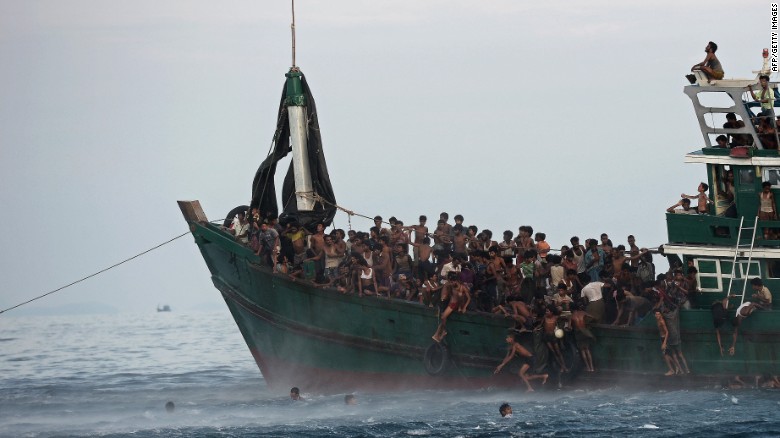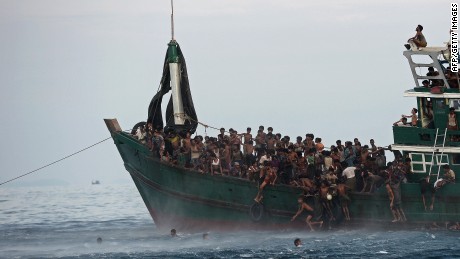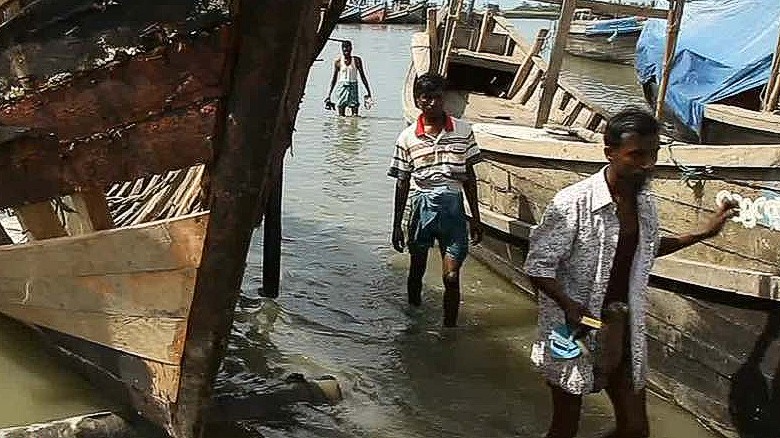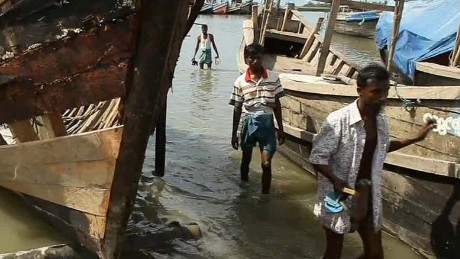Lost at sea, unwanted: The plight of Myanmar's Rohingya 'boat people'
(CNN)Meetings between the foreign ministries of Indonesia, Thailand and Malaysia are taking place Wednesday in an effort to ward off a looming humanitarian disaster. Thousands of Rohingya migrants remain stranded in the Andaman Sea, while authorities around the region refuse to take them in.
The scale of the crisis is still unknown. No organization, from the UNHCR and the International Organization for Migration (IOM) to Rohingya rights groups, knows how many boats there are. The number of migrants stranded aboard these ships, however, is estimated to be in the thousands.
Despite a plea from U.N. Secretary General Ban Ki-moon, urging Southeast Asian leaders to uphold "international law" and "the obligation of rescue at sea," Malaysia, Thailand and Indonesia are currently refusing to accept the "boat people" -- men, women and children who remain on ships, with rapidly dwindling provisions.
Thailand supplied them with food and water in the middle of last week, the last confirmed resupply.
CNN understands that the ships, which remain at sea, are trying to elude patrols and the refugees are effectively being held prisoner by their smugglers. Official sources, who have requested not to be named, say the smugglers may be telling people they can only accept landing rights in Malaysia as the smugglers are possibly Thai and wish to avoid what has become a very high-profile issue.
Thailand will host a regional conference on May 29, where the issue will be high up on the agenda.
More immediately, Malaysia will play host to three-way meetings Wednesday between the foreign ministers of Indonesia, Malaysia and Thailand. Despite its pivotal role in the crisis, the Myanmar government will not send a representative.
Meanwhile, the U.S. has said that while the humanitarian disaster at sea is the most pressing concern, a State Department official tells CNN the fundamental issue lies in Myanmar.
Assistant Secretary of State for Democracy, Human Rights and Labor, Tom Malinowski, toldCNN's Hala Gorani that the U.S. has offered assistance and is urging the governments of Thailand, Malaysia and Indonesia to work together to conduct search and rescue missions, and to allow the refugees to land.
"Our first responsibility is to save lives and that is something that has to be done in the coming days and hours. In the longer run, the biggest challenge is to get at the root cause of this crisis, the treatment of the Rohingya population inside Myanmar."
Myanmar
Myanmar, also known as Burma, is home to a large Rohingya population, particularly in Rakhine state, in the west of the country.
Clashes in 2012 between the state's Buddhist community and Rohingya Muslims, a long-oppressed linguistic and ethnic minority in this majority Buddhist country, left hundreds dead and more than 140,000 people homeless.
The United Nations estimates more than 100,000 Rohingya have fled Myanmar by sea since ethnic and sectarian violence erupted.
The government has forcibly segregated Rohingya from the rest of the population in Rakhine state. They live confined in enclaves -- rural ghettos, in effect -- from which they are not allowed to leave. The government refuses to recognize them as a legitimate ethnic group and as citizens of Myanmar.
Those who have the means to leave do so by perilous sea journey. They are taken out on small boats to cargo ships by smugglers, mostly bound for Malaysia.
The government has said it will not participate in Thailand's regional conference on May 29. Zaw Htay, a director in the office of Myanmar President Thein Sein, told CNN: "We will not participate in the discussions next week if the name 'Rohingya' is mentioned.
"If we recognize the name, then they will think they are citizens of Myanmar... Myanmar cannot take all the blame for these people who are now at sea. We need long term (solutions) and you can't just explain it by saying Myanmar is the source of the problem. A long term solution is needed."
A statement from the Ministry of Foreign Affairs, published in state media on May 19, points to illegal smuggling as the root cause of the problem, and says that the Burmese government "shares concerns expressed by the international community," and that it is "fully prepared to work with the international community, on humanitarian grounds, to alleviate the sufferings of the smuggled victims." The statement makes no mention or acknowledgment of Rohingya claims to citizenship.




No comments:
Post a Comment